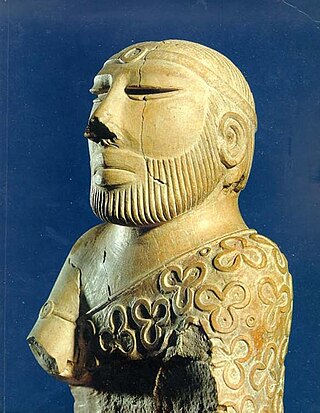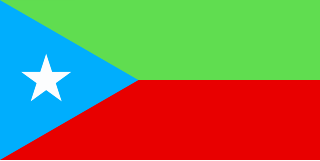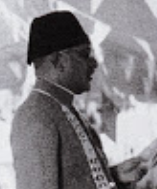Related Research Articles

Balochistan is a province of Pakistan. Located in the southwestern region of the country, Balochistan is the largest province of Pakistan by land area but is the least populated one. It is bordered by the Pakistani provinces of Khyber Pakhtunkhwa to the north-east, Punjab to the east and Sindh to the south-east; shares international borders with Iran to the west and Afghanistan to the north; and is bound by the Arabian Sea to the south. Balochistan is an extensive plateau of rough terrain divided into basins by ranges of sufficient heights and ruggedness. It has the world's largest deep sea port, the Port of Gwadar lying in the Arabian Sea.

Sindh is a province of Pakistan. Located in the southeastern region of the country, Sindh is the third-largest province of Pakistan by land area and the second-largest province by population after Punjab. It is bordered by the Pakistani provinces of Balochistan to the west and north-west and Punjab to the north. It shares an International border with the Indian states of Gujarat and Rajasthan to the east; it is also bounded by the Arabian Sea to the south. Sindh's landscape consists mostly of alluvial plains flanking the Indus River, the Thar Desert of Sindh in the eastern portion of the province along the international border with India, and the Kirthar Mountains in the western portion of the province.

The Baloch or Baluch are a nomadic, pastoral, ethnic group which speaks the Western Iranic Baloch language and is native to the Balochistan region of South and Western Asia, encompassing the countries of Pakistan, Iran, and Afghanistan. There are also Baloch diaspora communities in neighbouring regions, including in Central Asia, and the Arabian Peninsula.

Bahawalpur is a city in the Punjab province of Pakistan. It is one of the ten largest cities of Pakistan and 6th most populous city of Punjab. Bahawalpur is the capital of Bahawalpur Division.

Bahawalpur was a princely state in subsidiary alliance with British Raj and later Dominion of Pakistan, that was a part of the Punjab States Agency. The state covered an area of 45,911 km2 (17,726 sq mi) and had a population of 1,341,209 in 1941. The capital of the state was the town of Bahawalpur.

Qaumi Watan Party, abbreviated as QWP and formerly called Pakistan Peoples Party–Sherpao (PPP–S), is one of the prominent political parties in Pakistan, that split away from the Pakistan Peoples Party just before the 2002 general election. PPP–S was named after its leader Aftab Ahmad Sherpao. Differences had cropped up between PPP Chairperson Benazir Bhutto and Senior Leader Aftab Ahmad Sherpao in 1999 and the latter was expelled from the PPP by the former, thus creating PPP–S. In October 2012, it was renamed to Qaumi Watan Party when it changed its political agenda and declared itself as a Pashtun neo-nationalist party.

The history of Balochistan refers to the history of the Balochistan region of Pakistan, Iran and Afghanistan. Vague allusions to the region were found in Greek historical records of around 650 BCE. Prehistoric Balochistan dates to the Paleolithic.

Makran was an autonomous princely state in a subsidiary alliance with British India until 1947, before being absorbed as an autonomous princely state of Pakistan. It ceased to exist in 1955. It was located in the extreme southwest of present-day Pakistan, an area now parts of the districts of Gwadar, Kech and Panjgur. The state did not include the enclave of Omani Gwadar, which was under Omani rule until 1958.

The history of Sindh refers to the history of the Pakistani province of Sindh, as well as neighboring regions that periodically came under its sway.
Beluch or the Baloch of Turkmenistan are a small part of the greater Baloch people who live primarily in Pakistan, Iran and Afghanistan. Turkmenistan has a population of 36,000 to 37,000 Baloch people who are permanent inhabitants. They immigrated into the Merv and the Murghab River inland delta from the areas west and north of Herat, Afghanistan and Iran in the mid 19th century. More followed in the early 20th century and before closure of the Russian/Soviet borders under Stalin in 1925.

Omanis are the nationals of Sultanate of Oman, located in the southeastern coast of the Arabian Peninsula. Omanis have inhabited the territory that is now Oman. In the eighteenth century, an alliance of traders and rulers transformed Muscat into the leading port of the Persian Gulf. Omani people are ethnically diverse; the Omani citizen population consists of many different ethnic groups. The majority of the population consists of Arabs, with many of these Arabs being Swahili language speakers and returnees from the Swahili Coast, particularly Zanzibar.
Mian Mumtaz Daulatana, was a Pakistani politician and a key supporter of Pakistan Movement in British India. After independence, he served as the second Chief Minister of West Punjab in Pakistan.

The Baloch Republican Army (BRA) (Urdu: بلوچ ریپبلکن آرمی) was an armed militant group in Balochistan, Pakistan. In September 2010, the Government of Pakistan banned the Baloch Republican Army.
During the Partition of India, violence against women occurred extensively. It is estimated that during the partition between 75,000 and 100,000 women were kidnapped and raped. The rape of women by men during this period is well documented, with women sometimes also being complicit in these attacks. In March 1947, systematic violence against women started in Rawalpindi where Sikh women were targeted by Muslim mobs. Violence was also perpetrated on an organized basis, with Pathans taking Hindu and Sikh women from refugee trains while one alleged that he witnessed armed Sikhs periodically dragging Muslim women.

The princely states of Pakistan were princely states of the British Indian Empire which acceded to the new Dominion of Pakistan between 1947 and 1948, following the partition of British India and its independence.
Punjabi Muslims are adherents of Islam who identify ethnically, linguistically, culturally, and genealogically as Punjabis. With a population of more than 109 million, they are the largest ethnic group in Pakistan and the world's third-largest Islam-adhering ethnicity after Arabs and Bengalis. The majority of Punjabi Muslims are adherents of Sunni Islam, while a minority adhere to Shia Islam. They are primarily geographically native to the Punjab province of Pakistan, but many have ancestry from the Punjab region as a whole.

Nawab Iftikhar Hussain Khan of Mamdot was a Pakistani politician and an advocate of the Pakistan Movement in British India. After Pakistan's Independence, he served as the 1st Chief Minister of West Punjab and later as the Governor of Sindh.
Al-Balushi is an Arabic tribal surname common in Gulf Arab states derived from the term Balochi, denoting Baloch ancestry from Balochistan (Pakistan/Iran).

George Ali Murad Khan II Talpur is a member of the Talpur dynasty who was the Mir (ruler) of Khairpur from 1947 to 1954. At an age of nine months, Khan was mistakenly shot by his father. Although the bullet passed through his right lung and stomach, he survived. Ascending to the throne after his father's removal from power, he chose to accede to the Dominion of Pakistan in the same year and was invested with full powers by Liaquat Ali Khan in 1951. Three years later, the state merged with Pakistan, removing Khan's sovereign status. Khan fathered two sons, Abbas Raza Khan and Mehdi Raza Khan and one daughter Zahra from his second wife.
First Balochistan conflict was a rebellion instigated by Prince Agha Abdul Karim and Prince Muhammad Rahim of Kalat in response to accession of Kalat and with the aim of establishing Kalat as an independent state from Pakistan. With the arrest of the princes and loss of a lot of manpower, the rebellion ultimately came to an end in 1950 with Pakistan recapturing all territories.
References
- ↑ Long, Roger D.; Singh, Gurharpal; Samad, Yunas; Talbot, Ian (2015-10-08). State and Nation-Building in Pakistan: Beyond Islam and Security. Routledge. ISBN 978-1-317-44820-4.
- 1 2 3 4 "Oman's Diverse Society: Northern Oman" (PDF). JE Peterson.
- ↑ Long, Roger D.; Singh, Gurharpal; Samad, Yunas; Talbot, Ian (2015-10-08). State and Nation-Building in Pakistan: Beyond Islam and Security. Routledge. ISBN 978-1-317-44820-4.
- ↑ Hawker, Ron (2015). "A Beginner's Guide to Tribes in the UAE". Digital Heritage in the UAE. Archived from the original on 14 March 2016. Retrieved 23 July 2016.
Some tribes trace roots to other ethnic groups. Among the most important of these are the Baluch (or in Arabic, the Al Balooshi). Their ancestors came from the Baluchistan district split between Iran and Pakistan in the late 19th century.
{{cite web}}: CS1 maint: bot: original URL status unknown (link) - ↑ ""Conquest without Rule: Baloch Portfolio Mercenaries in the Indian Ocean." by Ameem Lutfi Department of Cultural Anthropolo - DukeSpace - Duke University" (PDF). DukeSpace.
- ↑ Nicolini, Beatrice (2004-01-01). Makran, Oman, and Zanzibar: Three-Terminal Cultural Corridor in the Western Indian Ocean, 1799-1856. BRILL. ISBN 978-90-04-13780-6.